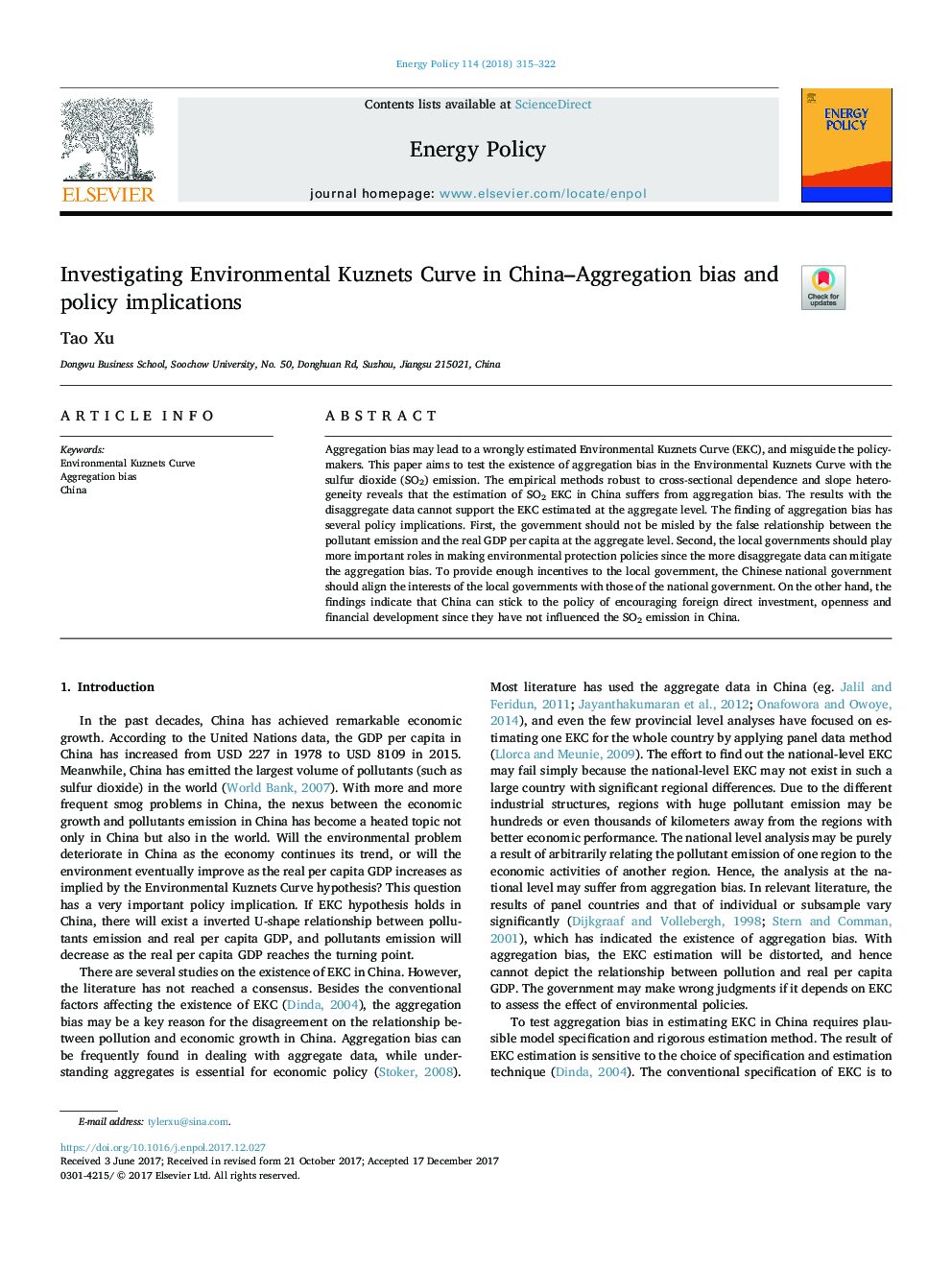| Article ID | Journal | Published Year | Pages | File Type |
|---|---|---|---|---|
| 7397722 | Energy Policy | 2018 | 8 Pages |
Abstract
Aggregation bias may lead to a wrongly estimated Environmental Kuznets Curve (EKC), and misguide the policy-makers. This paper aims to test the existence of aggregation bias in the Environmental Kuznets Curve with the sulfur dioxide (SO2) emission. The empirical methods robust to cross-sectional dependence and slope heterogeneity reveals that the estimation of SO2 EKC in China suffers from aggregation bias. The results with the disaggregate data cannot support the EKC estimated at the aggregate level. The finding of aggregation bias has several policy implications. First, the government should not be misled by the false relationship between the pollutant emission and the real GDP per capita at the aggregate level. Second, the local governments should play more important roles in making environmental protection policies since the more disaggregate data can mitigate the aggregation bias. To provide enough incentives to the local government, the Chinese national government should align the interests of the local governments with those of the national government. On the other hand, the findings indicate that China can stick to the policy of encouraging foreign direct investment, openness and financial development since they have not influenced the SO2 emission in China.
Related Topics
Physical Sciences and Engineering
Energy
Energy Engineering and Power Technology
Authors
Tao Xu,
